Originally published on January 21, 2023, this article has been updated on October 26, 2023 to reflect the latest research and statistics. Our editorial team has ensured you’re viewing the most current data on this topic. Need help or have a question? Email us.
Meat – love it or hate it, is one of the most consumed food types. With around 350 million tons of meat consumed annually worldwide, it comes as a close second to vegetables – which have an annual global consumption of 540 million tonnes.
While meat is often regarded as a core component of a healthy, balanced diet, many recent studies show strong connections between meat consumption and an increased risk of cancer.
In 2015, the World Health Organization (WHO) released a report classifying red meat as a group 2A carcinogenic and processed meats as a group 1. The WHO report, titled “Carcinogenicity of the consumption of red meat and processed meat,” demonstrates the evidence behind their conclusion.
The following article analyses the WHO report on meats and answers some key questions based on the research.
Overview – What Is the WHO, and What Is Their Study?
The WHO (World Heath Organisation) is an agency founded by the United Nations in 1948.
This organization aims to connect various networks, agencies, and people to keep society safe, promote healthy living, and look after vulnerable people and public health.
They aim to increase access to universal healthcare and fund responses to global health emergencies. Their main mandate is to promote health and well-being by researching relevant issues and worldwide health topics.
Historically, the WHO has been heavily involved in a range of public health milestones, including progressive advancements against several deadly diseases (smallpox, polio, ebola, HIV/AIDS, malaria, TB, COVID-19, and more).
They have also been part of developments in social issues such as substance abuse, food security, occupational health, and nutrition.
In October 2015, the WHO released a full report detailing their study on the carcinogenic nature of red and processed meat.
Their findings revealed that both red and processed meat contain carcinogenic chemicals that cause cancer in humans. The data suggests every 50 grams of processed meat eaten daily increases the chance of colorectal, pancreatic, or prostate cancer by 18%. (50g is equivalent to 1.7oz).
From their research, they classified processed meats as a Group 1 carcinogen. This highlights how those who eat processed meat have the same health risks as developing cancer from smoking.
I’ve analyzed the findings in their report to bring you the following key information. Based on the scientific evidence, several pertinent questions arose.
What Do You Consider Red Meat?
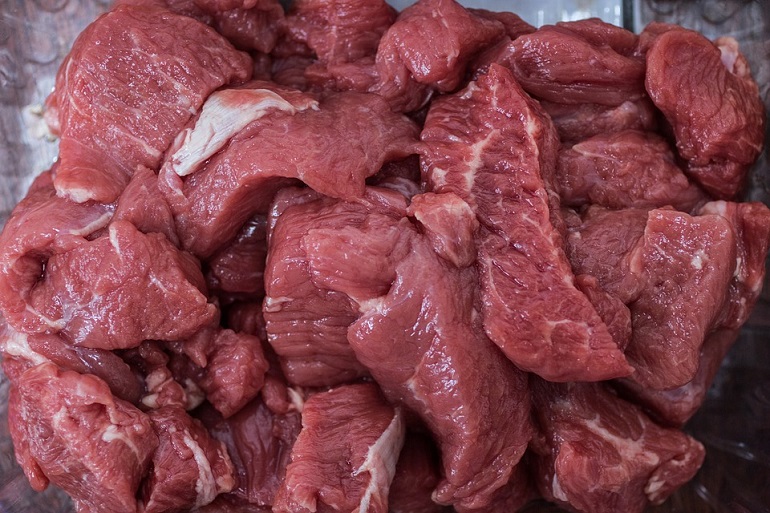
Red meat is classified as any muscle meat taken from a mammal.
Examples of red meat include:
- Beef
- Boar
- Elk
- Goat
- Horse
- Lamb
- Mutton
- Pork
- Veal
Any derivatives (like bacon, burgers, sausages, ham, etc.) of meat from the underlying animals fall into the category of processed meat.
Processed meat includes:
- Bacon
- Canned meat
- Chicken nuggets
- Corned beef
- Deli meats such as salami.
- Ham
- Hot dogs
- Beef Jerky (or others made from red meat)
- Lunch meat
- Meat-based sauces
- Pâtés
- Pepperoni
- Salami
- Sausages
- Sliced luncheon meats
Processed meats count as any meat that has been put through some transformative process – typically for preservation or to enhance flavor. This includes curing, fermentation, salting, smoking, or any other process that converts the meat to anything other than its raw form.
As the report highlights, a high processed meat intake contributes to a higher risk of colorectal cancer in comparison to eating red meat. However, the risk of developing colorectal cancer and cardiovascular disease is still exacerbated by the consumption of red meat or processed meat.
World Health Organization Declares Processed Meats Are Carcinogenic
The WHO concluded there was sufficient evidence to categorize processed meat as having a correlation to raising the risk of colorectal cancer and, to a lesser extent, stomach cancer.
Eating red meat counts as a Group 2 carcinogen, which is less dangerous than the Group 1 classification given to processed meat. That said, the WHO outlines the increased risk of colorectal cancer from consuming either red or processed meat.
The Group 1 classification ranks processed meat equally as dangerous as asbestos and tobacco smoke.
Why Did IARC Choose To Evaluate Red and Processed Meat?

The International Agency for Research on Cancer (IARC) chose to evaluate red and processed meat because of data revealed in a 2014 study and a committee meeting.
Analysis of the IARC report suggested that the consumption of red meat and other processed meats could have an effect on increasing the risks of a range of cancer types.
While many health agencies and scientists suggest that consumers should restrict the amount of meat they eat, they are typically concerned with the spread of diseases rather than cancers.
Therefore, the IARC decided to conduct risk assessments, and scientific research showed that cancer risk is increased by processed and red meat consumption.
What Are the Safest Ways To Cook Meat (e.g., Sautéing, Boiling, Broiling, or Grilling)?

The IARC Working Group did not discover enough data to ascertain if one cooking method is safer than others or whether the way meat is cooked affects the risk of cancer.
However, certain methods are prone to creating more carcinogenic compounds as a byproduct of the cooking process.
Cooking meat with methods involving high-temperature cooking or direct contact with flames from techniques like pan-frying, barbecuing, or flame roasting will create more carcinogenic byproducts, including heterocyclic aromatic amines.
Is Eating Raw Meat Safer?
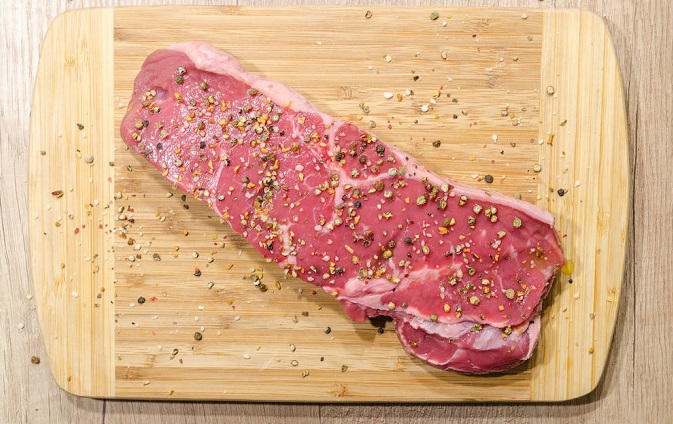
Nothing in the cancer research suggested raw meat was safer or more dangerous regarding carcinogenic properties. However, eating raw meats causes a range of other risks relating to bacteria and disease.
Thus, eating raw meats presents other health threats in combination with carcinogenic risks.
What Types of Cancers Are Linked or Associated With Eating Processed Meat?
Scientific evidence researched by the IARC working group suggested there was a strong correlation between colorectal cancer and red/processed meat consumption. There was a less conclusive correlation with stomach cancer; however, further study is required to cement this claim.
Processed Meat Was Categorized as a Group 1 Human Carcinogen. What Does This Imply?
The WHO classified processed meats as Group 1 carcinogenic to humans. This evaluation is used when scientific evidence provides reasonable grounds for a correlation between the consumption of this material and increased cancer risk.
This statement implies that there is sufficient evidence to highlight the carcinogenic nature of processed meats.
How Many Instances of Cancer Each Year Are Caused by Eating Red and Processed Meat?
Based on data from studies performed by the Global Burden of Disease Project, an estimated 34,000 deaths per year are associated with cancers related to processed meat consumption.
The same research suggests around 50,000 annual deaths could be attributed to cancer and cardiovascular disease due to the consumption of red meat. It’s troubling to think how many cancer deaths are the responsibility of the meat industry.
As a frame of reference, 1 million people die annually from smoking-related cancer (like lung cancer), there are 600,000 from alcohol consumption, and air pollution causes 200,000 deaths per year
What Is WHO’s Health Recommendation To Prevent Cancer Risk Associated With Eating Red Meat and Processed Meat?
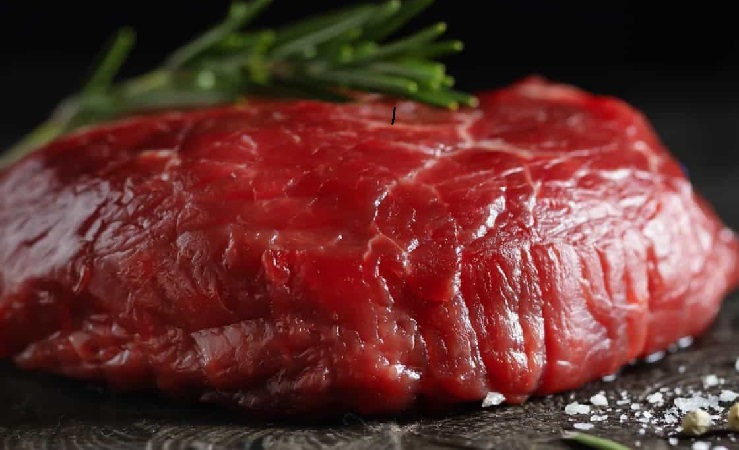
The WHO suggests people should limit their consumption of red meat and processed meat in order to reduce their cancer risk.
Many other health bodies suggest the reduction of US meat consumption, not only to lower cancer risk but also to minimize the consumption of sodium and fat, which causes other health problems like obesity and heart disease.
If you are concerned about cancer risk, our advice is that you focus on achieving a healthy diet to maintain a healthy weight and try to minimize the amount of red or processed meat you eat.
Is the Cancer Risk Higher in Children, Older Adults, Women, or Men? Are Some People More at Risk?
From the data generated by these studies, no accurate claim could be made about the cancer risks associated with different age-based demographics. More studies could be conducted to ascertain any correlation in this regard.
However, general cancer risk increases with age, so it might be better for older adults to avoid diets high in processed or red meats to avoid the threat of cancer risk.
Tobacco smoking is also recommended to be avoided by the elderly; however, it’s more damaging to start smoking younger as you have longer exposure to the cancerous effects.
Could You Quantify the Risk of Eating Red or Processed Meats?
Based on the IARC Working Group studies and data from 10 other studies, there are adequate grounds to claim that the risk of developing colorectal cancer increases by 18% for each 50g of processed meat eaten on a daily basis.
Quantifying the risks of red meat is more complicated, and the estimates will be vaguer because evidence of causality between red meat and cancer is not as obvious.
Studying data from the same 10 studies shows that every 100g of red meat consumption per day increases the risk of colorectal cancer by 17%.
Which Component in Processed Meats Has the Potential to Be Harmful?
There are actually several potentially harmful components in processed meat. The main offenders are Nitrite, N-Nitroso Compounds, and Nitrosamines. Studies highlight that these may be responsible for the negative effects of eating processed meat.
These specific types of chemicals are typically used as flavor enhancers, colorants, and preservatives. While these compounds are not technically carcinogens in themselves, they have the potential to react with other compounds (during digestion or the formation processes) to create carcinogenic elements.
Analysis of these compounds and their formation of other chemicals highlights their causes for increased stomach, bowel, and colon cancer risks.
Should I Stop Eating Meat?
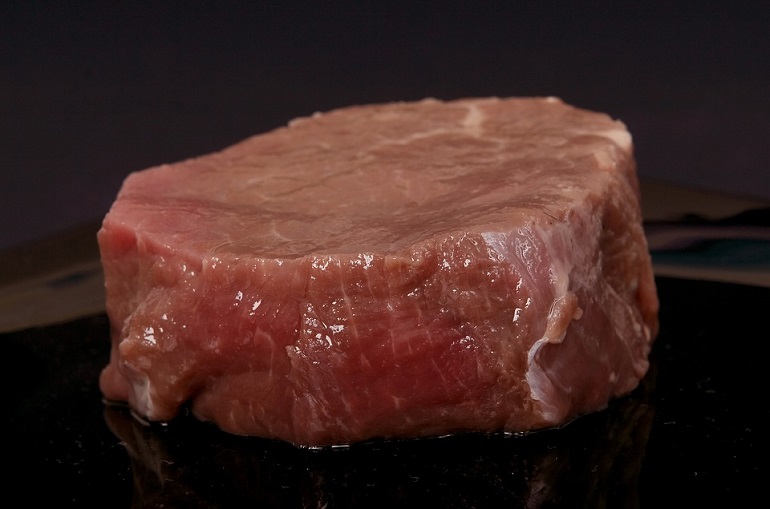
Whether you should stop eating meat is ultimately your choice, but a range of factors suggest that it could be beneficial for your health.
Several studies and health and international regulatory agencies agree that reducing red or processed meat intake will lower your risk of diabetes, death, heart disease, colorectal cancer, and other health complications.
While many people believe the myth that meat is the only way to have enough protein in your diet, there are several decent alternatives. Protein-rich pulses and legumes like peanuts and beans are an ideal alternative to the consumption of red meat.
You could also limit your intake of red and processed meats by replacing them with white meat, such as poultry like chicken or turkey. These still have a similar nutritional value but without the absolute risk created by processed meat.
How Much Meat Is Safe To Eat?
The amount of meat that is safe to eat depends on your overall diet and health. However, these studies didn’t discover solid or accurate data to suggest a reliable level of safe meat consumption.
As a rule of thumb, the more meat you eat, the more your risk of cancer increases.
To some extent, the cooking method also has an effect on the risk of colorectal cancers and other forms. Avoiding high temperatures prevents the creation of other carcinogenic elements which are found in charred or burnt meat.
Should I Become a Vegetarian?
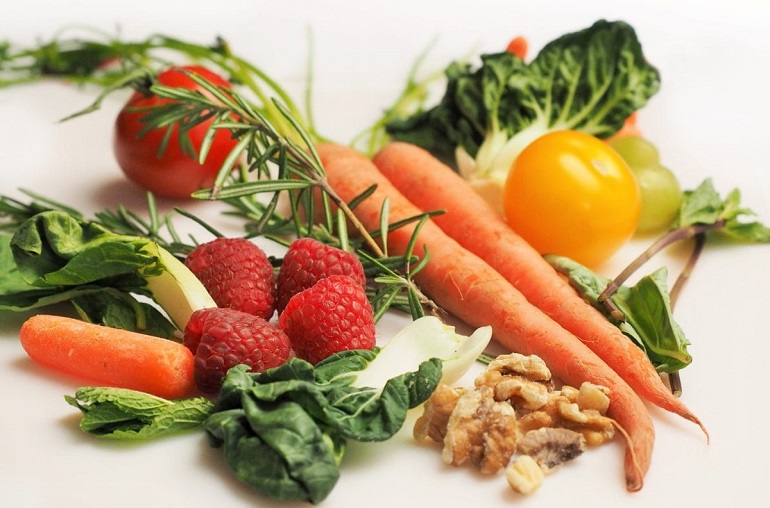
Comparing vegetarian and omnivorous diets in terms of health benefits has always been a complicated and widely contested topic. While this specific report from the World Health Organization wasn’t addressing the nature of vegetarianism, there have been countless studies analyzing this debate.
In a report based on research from the Mayo Clinic, there are several benefits to vegetarian diets.
Vegetarianism can reduce the health risks for certain cancers, heart disease, type-2 diabetes, obesity, excessive cholesterol, hypertension, and high blood pressure.
However, these benefits are strictly related to the type of vegetarian diet consumed.
Many vegetarians, while avoiding processed meats, end up consuming an excessive amount of processed vegetarian foods. These are often high in fat, sodium, sugar, and calories, all of which have associated risks.
Some of these processed foods can also fall into the same category of Group 1 carcinogens as processed meats, based on the carcinogenic chemicals used in their production. Typically processed vegetarian food also contains colorants, preservatives, and flavor enhancers.
However, a diet high in fruit, vegetables, grains, protein, and calcium-rich foods can provide a healthy, nutrient-stable diet.
If you decide you want not to eat meat anymore, make sure you carefully plan out your meals to meet nutritional and dietary guidelines.
The following dietary guidelines provide some weights for daily consumption for a 2000-calorie vegetarian diet.
- 450g Vegetables
- 400g Fruits
- 180g Grains
- 300g Dairy
- 100g Protein-rich foods
- 27g Oils
FAQ’s
What Is a WHO Group 1 Carcinogen?
A Group 1 Carcinogen classification is given to any element that has been scientifically proven to cause cancer in humans. Carcinogenic elements are any type of chemical that causes cancer. The difference between Group 1 and Group 2 carcinogens is simple.
Group 1 contains elements that have sufficient evidence to show their carcinogenic nature.
Group 2 contains elements that have limited evidence, although they can still be classed as probable carcinogens.
Is Meat a Class 1 Carcinogen?
Processed meats have been classified as Class 1 carcinogens by the WHO.
Red meats have only been classified as a Group 2 carcinogen.
Eating processed meat like bacon, sausages, ham, and others has been labeled as equally dangerous and cancerous as asbestos and tobacco smoking by the WHO.
Is Bacon Considered a Type of Processed Meat?
Bacon is considered a type of processed meat, as it typically undergoes a range of processes to change it from the original raw state of pork. Often, bacon goes through smoking, salting, and curing and is sometimes treated with preservatives to improve preservation.
Conclusion – Is It Time to Stop Eating Meat?
While you are welcome to make your own conclusions, based on the evidence presented in this World Health Organization report, you might reconsider eating processed meats and red meats.
This WHO report on meats shows strong links between processed and red meats and an increased risk of colorectal cancer. Maintaining a healthy diet is vital for a long and healthy life, so limiting the amount of meat consumed in your diet will definitely have a positive effect.












